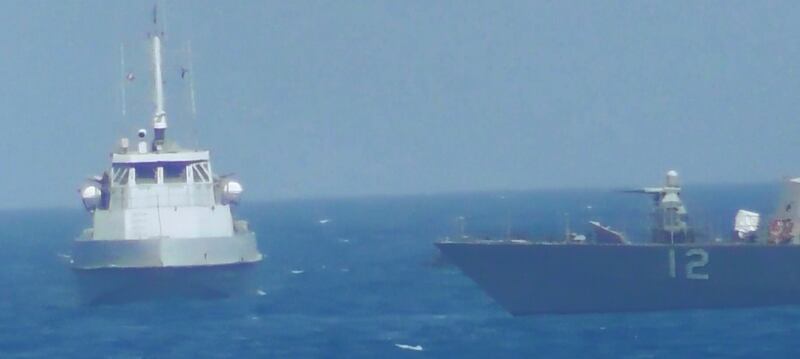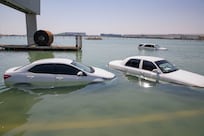The United States has hit out at the “unsafe and unprofessional" actions which led to its Navy firing warning shots at an Iranian vessel when it came within 137 metres of its ship in Arabian Gulf waters.
The USS Thunderbolt fired the warning shots after the Iranian vessel approached at high speed and ignored radio calls, flares and the ship's whistle. The Thunderbolt was accompanied by several US Coast Guard vessels.
The Iranian vessel appeared to be from Iran's Islamic Revolutionary Guard Corps, according to an anonymous U.S. official, adding that it was armed but that the weapons were unmanned.
The Islamic Revolutionary Guard Corps and Iranian Foreign Ministry could not be reached for comment.
However, the United States Central Command released a statement describing the IRGC’s actions as “an unsafe and unprofessional interaction with a U.S. Navy ship during a coalition exercise in the international waters of the Arabian Gulf”.
It added: “The Iranian vessel made a close approach to coastal patrol ship USS Thunderbolt (PC 12), getting within 150 yards.
“The Iranian vessel did not respond to repeated attempts to establish radio communications as it approached. Thunderbolt then fired warning flares and sounded the internationally recognised danger signal of five short blasts on the ship's whistle, but the Iranian vessel continued inbound.
“As the Iranian vessel proceeded toward the U.S. ship, Thunderbolt again sounded five short blasts prior to firing warning shots in front of the Iranian vessel. After the warning shots were fired, the Iranian vessel halted its unsafe approach.
“The Iranian vessel's actions were not in accordance with the internationally recognised COLREGs ‘rules of the road’ nor internationally recognised maritime customs, creating a risk for collision."
The last major incident was earlier in January, though there have been other instances when a US vessel fired a flare and another event in March when a US Navy ship was forced to change course after multiple fast-attack vessels from the Islamic Revolutionary Guard came too close.
Years of mutual animosity had eased when Washington lifted sanctions on Tehran last year as part of a deal to curb Iran's nuclear ambitions. But serious differences remain over Iran's ballistic missile program and conflicts in Syria and Iraq.
The Trump administration, which has struck a hard line on Iran, recently declared that Iran was complying with its nuclear agreement with world powers, but warned that Tehran was not following the spirit of the accord and that Washington would look for ways to strengthen it.
During the presidential campaign last September, Trump vowed that any Iranian vessels that harass the US Navy in the Gulf would be "shot out of the water."
Such incidents occur occasionally. In January, a US Navy destroyer fired three warning shots at four Iranian fast-attack vessels near the Strait of Hormuz after they closed in at high speed and disregarded repeated requests to slow down.





